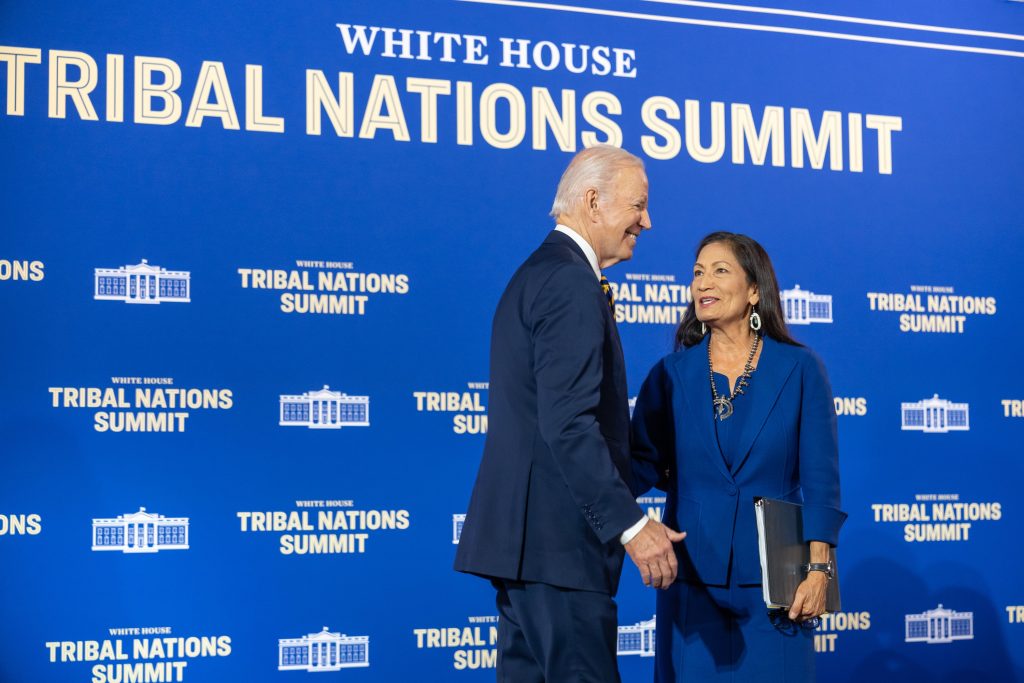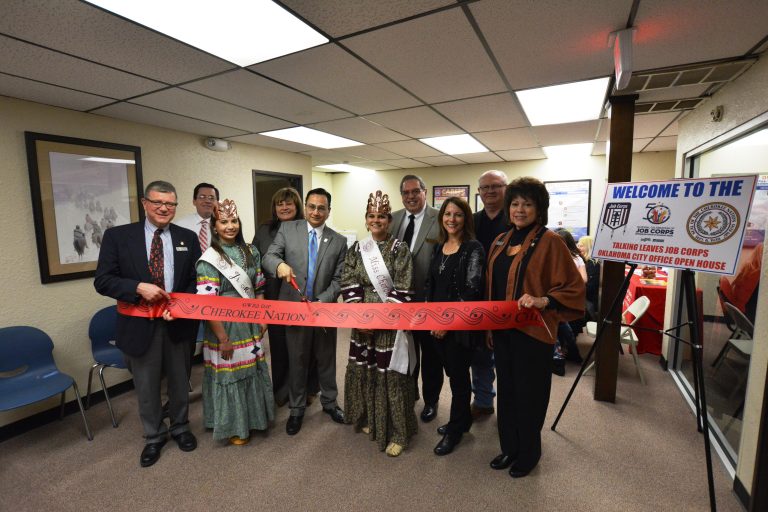Podcast: Play in new window | Download | Embed
President Joe Biden is traveling to the Gila River Indian Community Friday to formally apologize — on behalf of the United States — to the countless thousands of Native families harmed by America’s historic Indian boarding school policies.
Matt Laslo reports from Washington.
President Joe Biden is in Arizona to deliver an apology of historic proportions over past U.S. Indian boarding school policies.
“Oh my gosh, I am — I mean, I never thought I would see this in my lifetime.”
That’s Interior Secretary Deb Haaland, the first Native American in U.S. history to serve as a cabinet secretary, in an interview with National Native News.
She’s an enrolled member of the Pueblo of Laguna who’s been personally impacted by America’s Indian boarding school policies from 1819 through the seventies.
“Decades ago, when I was sitting at my grandmother’s kitchen table and talking to her about boarding schools she didn’t tell me everything, right? I knew there was more to what she was telling me.”
Like countless other Native Americans, Sec. Haaland still feels the impact of those injustices on her ancestors, including that her great-grandfather only had a “horse and wagon”, even as his daughter’s boarding school was some 125 miles away.
“She told me he was able to only visit her twice during the five years that she was there. Her time there, her dad’s time at boarding school, that affected my life, and I didn’t realize how much it affected my life until I got a little bit older.”
That painful family history is partly why, back in 2021, Sec. Haaland launched the administration’s Federal Indian Boarding School Initiative.
Part of it was a listening tour across Indian Country, which is culminating with President Biden’s formal apology to Native Americans and Alaska Natives from coast to coast.
“I hope they feel seen. I hope they feel heard by the president of the United States,” Sec. Haaland said. “It is a big deal.”
Sec. Haaland says President Biden’s apology isn’t just about formalities.
“The president also restarted the White House Council on Native American Affairs, he restarted the Tribal Nation Summits — none of those things happened under the previous administration.”
Critics say the apology is political because President Biden is delivering it in the battleground state of Arizona less than two weeks out from the election, but Sec. Haaland brushes those barbs aside.
“No. I mean, they can say what they want. The president’s apology is real and it’s heartfelt and it’s meaningful, and it will mean something to the people there. It will mean something to anyone who listens to it. It’s a wonderful day to be Indigenous, and I’m really proud to be by the president’s side for this most important day.”
Watch President Biden’s remarks starting at 1:30 p.m. ET
Recovery, cleanup and storm damage assessments are underway in Kotzebue, Alaska, after a coastal storm flooded the community this week.
The state has declared a disaster as emergency teams respond.
Reporter Megan Onders spoke with Kotzebue Mayor Derek Haviland-Lie.
“Our actual water and sewer system faired well, everything is still intact. We did have a couple of places around town were there was some damage. There was some leaking, but we were able to shut the water off at that source. We did have one home that the foundation was completely destroyed and the house collapsed.”
And the next steps?
“The borough has taken the lead on anybody that cannot return to their home. They’re finding places for them to be housed. The tribe has taken the lead on donations from various entities outside of Kotzebue with food and water. The city on our side, we’re heading, obviously repairing the roads that were damaged and debris cleanup in the streets. Assessors that are coming in today, that is gonna start going around town and documenting damage.”
Listen to more conversations from Kotzebue residents
Get National Native News delivered to your inbox daily and stay up-to-date on the 2024 Native Vote. Sign up for our daily newsletter today.






